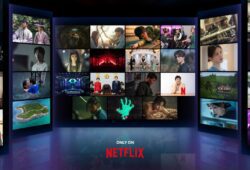-
According to MarketingWeek, two thirds of the brands recognized in Cannes Lions have more organic growth
-
Likewise, creative marketing is responsible for almost half of the sales uplift that any brand experiences
-
However, investment in creative advertising has dropped by around 12 percent in the last few years
There are a lot of technologies that are an essential in the toolkit of a great marketing expert. Artificial Intelligence (AI) is helping in tasks like social media management and data analyisis. Big Data, as a discipline, also supports businesses in the decision making process. Even the simple techniques of SEO, SEM and other content optimization activities reflect how close has the industry merged with said innovations. However, there’s a challenge left, mostly unseen.
When asked which are the biggest challenges that the marketing industry faces for 2020 and beyond, each agent has something different to say. Hubspot believes that generating traffic and leads (through online channels) is the main worry of most brands and agencies. According to Business 2 Community, the worst barrier is actually reaching the right audiences through tools like search and social. And Exchange says that companies struggle with digital strategies.
Does anybody remembers creativity in marketing?
All of these urgent challenges have something in common: mainly focus on the technical tasks and difficulties of using technology. It almost seems like creativity is now a secondary issue in the marketing implementation. Maybe that would be fine if most companies have mastered this ability. But this is clearly no the case. In fact, according to Sizmek, two thirds of marketers now believe that creative quality inside the advertising industry has plummeted in the last few years.
Creativity seems to be perceived in marketing as less important. But in an interview with Merca 2.0, Lindsay Pattison, Chief Client Officer, WPP, says the opposite should be true.
We see technology as an enabler of creativity. We don’t see it as being a competitive relation. Is a beautiful interaction, because this innovative tools allows us to deepen and enhance our level and expression of creativity. Allows to develop multidimensional ideas at a quicker pace.
Notas relacionadas
- Creativity is really that important in the industry?
- The lack of creativity in what we do
- 10 incredible reasons why you are creative
The competitive advantage of creativity
But there is another reason why brands and agencies should begin to pay attention, again, to the development of creativity inside their marketing teams. MarketWatch says global AI market will reach 169.41 billion dollars in 2025, 40 times the 2016 value. Statista believes Big Data will be valued at 103 billion in 2027, an increase above 1200 percent in just 16 years. And Fortune Business Insights estimates Internet of Things (IoT) is going to grow tenfold from 2018 to 2026.
One conclusion can be made. Soon, all agencies and brands will have these technologies. And when the time comes, Pattison agrees, creativity will be the grand added value in marketing.
Technology is an enabler to everybody. So the deal with AI is not how you apply it, but how you apply it in conjunction with imagination. Hardware, software, cloud will be relatively normalized. It is what you do, how you use it and how it’s applicable to the marketing challenges of brands.
Possible automation of creative marketing tasks
However, there have been a couple projects and initiatives that have used algorithms in tasks normally reserved fo humans. For example, the Adweek bot that is capable of writing Super Bowl ads. Or the Persado IA of JP Morgan Chase, that writes copy for marketing campaigns. The CCO of WPP accepts that, theoretically, some creative activities can be automated via Machine Learning. But still thinks there’s something unique that machines will never replicate.
It all depends on your definition of creativity. Already AI is doing tasks like search campaigns, changing words and their order based on the data and signals it receives from the users. But I would be more skeptical that a simple machine can truly touch human emotion and create a large scale, thought provoking ad that would run on a cinema. You can use algorithms for very precise tasks in marketing, but there should be a larger, long term creative strategy behind it.









